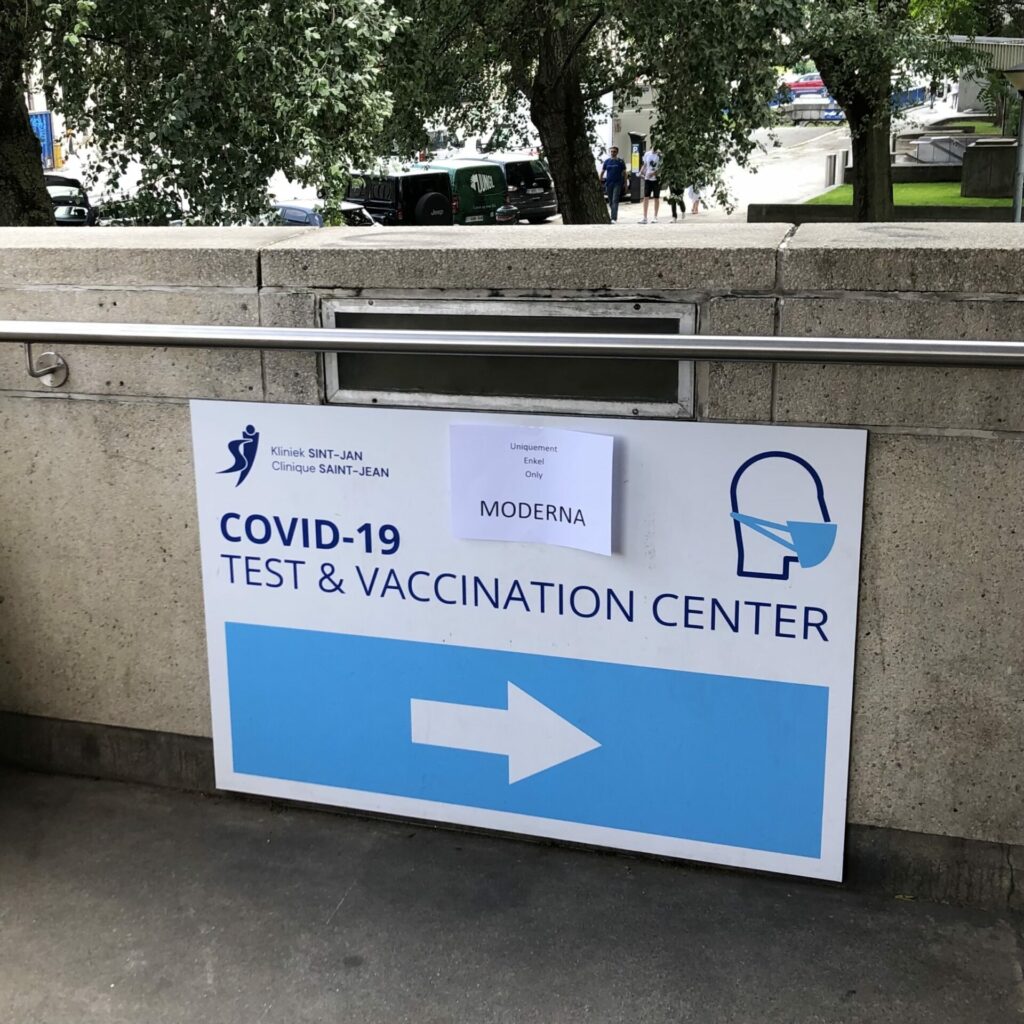After weeks of both figures declining, the number of new Covid-19 cases as well as the number of new hospitalisations as a result of the virus are continuing to increase.
Between 4 and 10 June, an average of 1,878 new daily Covid-19 infections was identified: a 19% increase from the previous seven days, according to figures published by the Sciensano Institute of Public Health on Tuesday.
The average number of tests taken per day remained largely the same since last week, but the positivity rate has increased to 19.4%, meaning almost one in five tests has a positive result.
The highly transmissible Omicron variant, Omicron BA.2, accounts for just 59.1% of all cases, as the Omicron BA.5 is rapidly gaining ground.
During the same week, an average of 5.9 patients suffering from Covid-19 died on a daily basis, down by 5% from the previous week. The total number of deaths in Belgium since the start of the pandemic amounts to 31,835.
This figure includes people who died of another cause of death, but who happened to be infected, meaning there may be an overestimate of Covid-19 deaths that were caused by the virus.
Situation in hospitals
Between 7 and 13 June, an average of 60.7 patients suffering from Covid-19 was admitted to hospitals each day — up by 15% from the previous seven days.
The figure reflects how many people are hospitalised directly because of the virus, not those who are admitted with another condition and then also test positive for Covid-19.

Credit: Belga
On Monday, 889 people were in Belgian hospitals due to an infection, similar to the figure recorded last Friday, while the number of people being treated in intensive care continues to slowly decrease and now sits at 62.
This number covers all patients who tested positive for Covid-19, including those who were first admitted with a different condition.
Reproduction rate, incidence, and total vaccinations
After remaining below 1 for weeks, the reproduction rate has increased to 1.10. This figure represents the average number of people that contract the virus from each infected person. When it is above 1, it means that the epidemic is gaining ground in Belgium.
Related News
- New booster vaccine offers protection against Omicron variant
- Canada suspends random Covid-19 testing at airports
- Covid-19 can spread from cats to people, study shows
The incidence (the number of new cases per 100,000 inhabitants) has also started to rise and now sits at 210 over the past 14 days.
As of Saturday, more than 9.14 million people are fully vaccinated – 89% of Belgium's adult population and 79% of the total population. Meanwhile, almost 7.16 million people have received a booster dose of the vaccine, representing 75% of over-18s and 62% of the entire population.
The frequency of Sciensano's update on the epidemiological situation has also been adjusted: although the institute will "continue to closely monitor the Covid-19 situation in the country," it is only publishing an update twice a week – on Tuesday and Friday – rather than on a daily basis.

